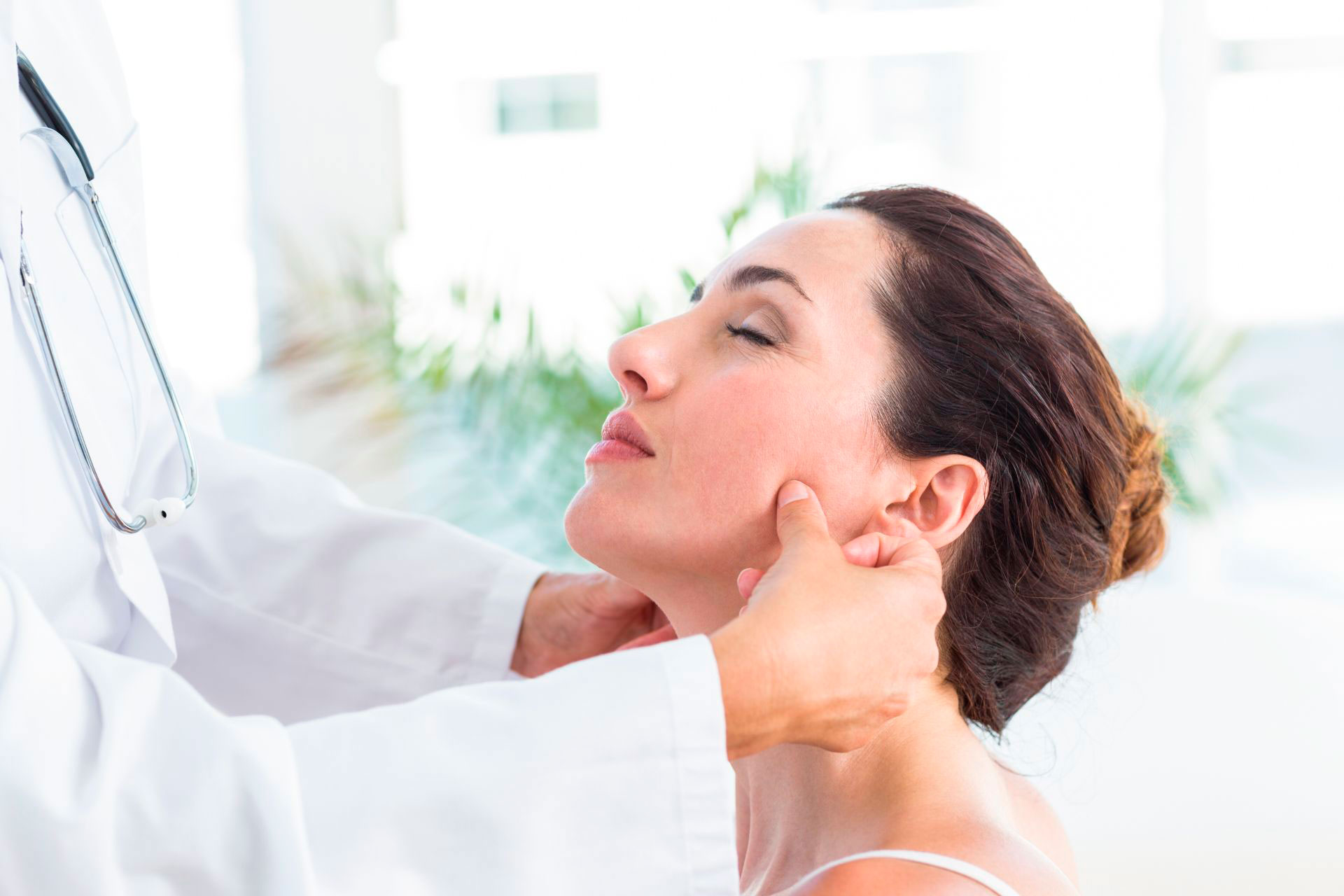Bruxism – the grinding and clenching of the teeth – is a common condition that can cause many kinds of pain, stiffness, tension and even physical damage. Depending on the situation, bruxism can be treated, its symptoms alleviated, and damage prevented either with a custom-made nighttime mouth guard and/or botulinum injections by a dentist. Botulinum treatment relaxes the jaw muscles and reduces the force of teeth grinding.
Book an appointment for botulinum treatment for bruxism
What is bruxism?
Bruxism refers to teeth grinding, involving their forceful rubbing together or biting together and/or intense clenching of the jaw muscles. There are two types of bruxism:
- Grinding the teeth at night. Teeth grinding and clenching of the jaw muscles are most common during sleep. Someone who grinds their teeth may not even be aware of this nighttime problem, unless, for instance, their partner draws their attention to the noise they make. The damage caused by grinding of the teeth may also reveal the problem during a dental check-up.
- Grinding the teeth together during the day. Bruxism can also occur during waking hours. It is often a subconscious habit that individuals may develop due to various factors, such as stress.
Symptoms of bruxism
Among the symptoms of teeth grinding are the following:
– pain in the face and temples, especially in the morning
– sore, tired or tense bite muscles
– toothache, especially immediately after waking up
– jaw stiffness or pain when chewing food
– dental wear and damage, chipping of dental fillings and tooth enamel.
– greater likelihood of toothache
– mouth ulcers, bite marks on the inside of the cheeks
– functional problems in the jaw joint, such as jaw clicking or locking, pain when yawning
– tension-type headache
– neck or shoulder pain
Causes of teeth grinding
There is no single clear cause for bruxism. Instead, it is caused by various individual factors. One suspected cause is stress or emotional states such as anxiety and tension. Problems related to the bite, such as misaligned teeth or other bite problems, as well as sleep disturbances like sleep apnea, can be connected to the condition. Some medical conditions or medications could potentially cause bruxism. Hereditary factors also seem to play a role.
Treatment of teeth grinding
It can be very difficult to prevent or reduce teeth grinding and clenching with home remedies. Reducing any stress and anxiety through various relaxation techniques may help. Alcohol and caffeine appear to increase the risk of grinding the teeth. Use of chewing gum should be minimised, as it conditions the jaw muscles for the same motion as in teeth grinding.
Medical professionals use several methods for treating bruxism. An individually tailored mouth guard made based on a dentist’s examination typically doesn’t prevent teeth grinding entirely, but it does protect the teeth and jaw joints from damage, alleviates muscle pain, and also reduces the noise caused by the teeth grinding. Orthodontic treatment can be helpful if a contributing factor to the issue is malocclusion, i.e. bite misalignment. Similarly, treating sleep apnea can help alleviate the effects of bruxism, although it is of course also beneficial to the patient in various other ways, as well. Although there are no specific medications for bruxism, a dentist or doctor may sometimes prescribe short-term pain relievers or muscle relaxants.
Treatment of bruxism with botulinum
An effective treatment for relieving bruxism symptoms is botulinum toxin, commonly known as Botox. Botulinum injections help a significant portion of those suffering from bruxism to some extent. Botox acts as a muscle relaxant. It prevents nerve impulses from reaching the muscles, reducing high muscle tension and contractions, thus reducing the force of teeth grinding and clenching of the teeth.
When treating bruxism, botulinum is injected directly into the jaw muscles. The procedure is quick and usually takes only a few minutes on each side. The injection needle is very thin, and patients generally experience mild pain, but those with a fear of needles can opt for anaesthesia.
Most patients experience noticeable relief from their symptoms within a few days after the injections. The treatment’s effect typically lasts for three to six months. Botulinum breaks down in the body, which is why the treatment usually needs to be repeated. However, it’s possible that during the time the botulinum has an effect that the patient may “unlearn” teeth grinding, and so the problem may not return after the treatment wears off.
The Skin Hospital’s doctors and nurses provide expert assistance for treating bruxism. Bruxism can be treated with botulinum toxin injections once a diagnosis of bruxism has been made. The diagnosis is made by a doctor. If you already have a diagnosis, you can first book an appointment to get a prescription and then book an appointment for the injection. For medical botulinum treatments (bruxism, migraines and excessive sweating), you can get the medicine from a pharmacy with Kela reimbursement.
Book an appointment for botulinum treatment for bruxism
Price list
| Botulinum toxin treatment for bruxism | Treatment of illness (VAT 0 %) | As aesthetic treatment (VAT 25,5 %) |
|---|---|---|
| Botulinum toxin treatment for bruxism |
364,15 € + Botox according to pharmacy pricing |
--- |




